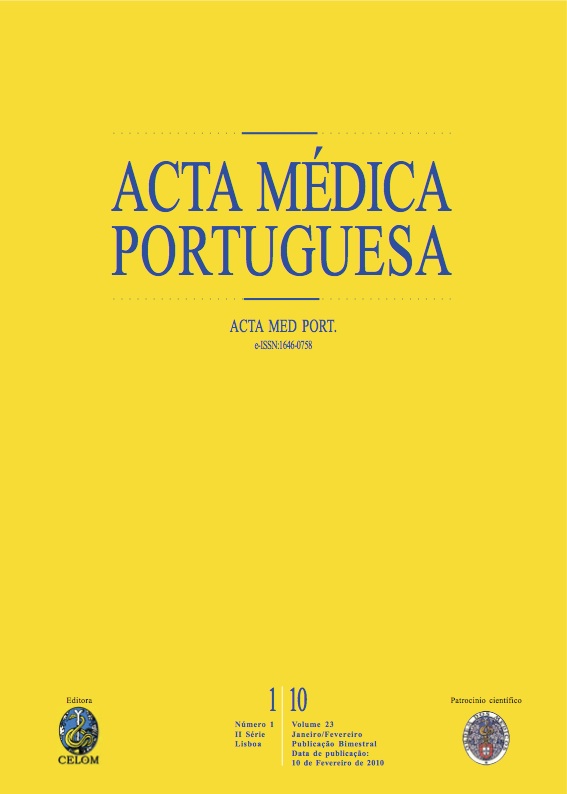Attachment style in patients with systemic lupus erythematosus.
DOI:
https://doi.org/10.20344/amp.595Abstract
The aim of this study is to characterize patients with SLE in terms of attachment style, personality, psychopathological morbidity and quality of life, comparing them with a healthy volunteer group.We collected 53 patients diagnosed with SLE, in a specialized consultation of autoimmune diseases. The patients were characterized clinically (by means of SLICC/ACR, SLEDAI, length of disease and therapy) and psychologically at the same time. The psychological evaluation was made by the application of self-measured questionnaires, namely AAS, BSI, HADS, SF-36, EMBU and NEO-FFI, and also by the completion of a psychological interview.SLE patients adopted, mostly, an anxious, insecure attachment style. We found high levels of somatisation and psychopathological morbidity, particularly depression. We also observed an impairment of the quality of life in these patients. We found statistically significant and positive correlations between the insecure attachment styles and psychopathological morbidity, we also noticed negative associations with the dimensions of quality of life. By means of multiple linear regression models, some clinical variables (SLEDAI and SLICC/ACR) highlight as predictors of insecure attachment styles.SLE has specific and particular characteristics that lead to insecure attachment styles, psychopathological morbidity and impairment of quality of life. Thus arises the need for a specific and complementary psychotherapeutic intervention, adapted to the needs of these patients.Downloads
Downloads
How to Cite
Issue
Section
License
All the articles published in the AMP are open access and comply with the requirements of funding agencies or academic institutions. The AMP is governed by the terms of the Creative Commons ‘Attribution – Non-Commercial Use - (CC-BY-NC)’ license, regarding the use by third parties.
It is the author’s responsibility to obtain approval for the reproduction of figures, tables, etc. from other publications.
Upon acceptance of an article for publication, the authors will be asked to complete the ICMJE “Copyright Liability and Copyright Sharing Statement “(http://www.actamedicaportuguesa.com/info/AMP-NormasPublicacao.pdf) and the “Declaration of Potential Conflicts of Interest” (http:// www.icmje.org/conflicts-of-interest). An e-mail will be sent to the corresponding author to acknowledge receipt of the manuscript.
After publication, the authors are authorised to make their articles available in repositories of their institutions of origin, as long as they always mention where they were published and according to the Creative Commons license.









